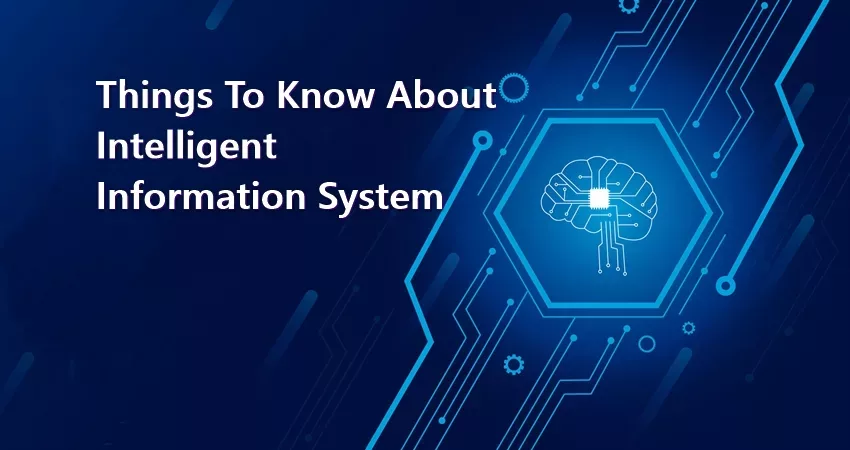The recent years of manufacturing research and development have been governed by the trends of Artificial Intelligence, database management, and information systems (IS).
Intelligent Information System (IIS) represents the evolution of knowledge. It has been led by modern technology integrations, data processing, and distribution in multiple computational environments.
Machines are programmed perfectly for a fixed type of environment to provide an expected result by processing a particular data in a given manner.
The information retrieved depends upon the perfect input and situations that the machine was programmed to deal with, and resultantly shows little to no intelligence.
Intelligent information systems are aspired to work like an evolved human brain. With changing circumstances, a tool needs to be optimal at decision making.
It must be able to adapt and change themselves according to the data and information fed with the least cost and effort.
With Intelligent Information Systems, a group of users, devices, and data could coordinate their actions together for decision making without needing a third party.
For it to work flawlessly, the system ought to be fed with refined substantiated and ratified data & information.
With higher cognitive science, natural language processing, machine learning, semantic technologies, and knowledge-based systems (KBS) technologies, IIS has been advancing a lot in the last few years.
IIS also employs other data related techniques like data mining, data sharing and warehousing, analytics, image analysis, information logistics, and knowledge discovery.
IIS is a smart information processing that uses neural networks and IS with advanced data analysis. It enables the user without having any expertise in problem-solving analysis to take evidence-based decisions in complex situations.
With all the information and artificial neural network tools, IIS embodies intelligent strategic, tactical, and operational decision-making skills.
Also Read: Kubernetes and Docker: Either or Both?
With cutting edge technologies in the bay, IIS implementation is seeing a boost in popularity for problem assessment.
The system is now in various domains, including marketing, financial decision makings, digital multimedia forensics, personal data analysis, healthcare systems, media archiving and production, and predictive modeling.
IIS enables organizations to attain complex tasks with relative ease and in lesser overall cost and creates adaptive and intelligent workflows.
Apart from decision support, IIS concerns with executive information, management information, and transaction processing systems.
It adapts itself perfectly with the changing programming environment while assisting in remote monitoring and management with its problem solving and decision making tools and techniques.
With a high level of data granularity, the IIS expert system exhibits intelligent behavior.
Discovery, access, retrieval, and manipulation of a large variety of data and knowledge processed and stored in previous processes help them with optimal decision making in future tasks.
Complex statistical methods into machine learning display the information when required.
An intelligent Information System can gather and analyze data and communicate with other systems, even with a changing environment.
With the help of ANN, deep learning, and other related techniques, the system gathers and analyses data while learning from the past results, data, security, and connectivity issues. With its effective mechanism, the system determines the actions to be taken if any conditions occur.
An intelligent information system can further accurately predict the process timing and resources needed. Thus, it operates accordingly and prepares and stores the result before the retrieval request arrives, ready for quick access.
With all of this, it’s possible to converge, diverge, extract, and process tons of data and generate probabilities and higher prediction accuracy.
You May Also Like To Read:
Containerization vs. Virtualization: Differentiating the Two
OLTP vs OLAP: Understanding the Differences

